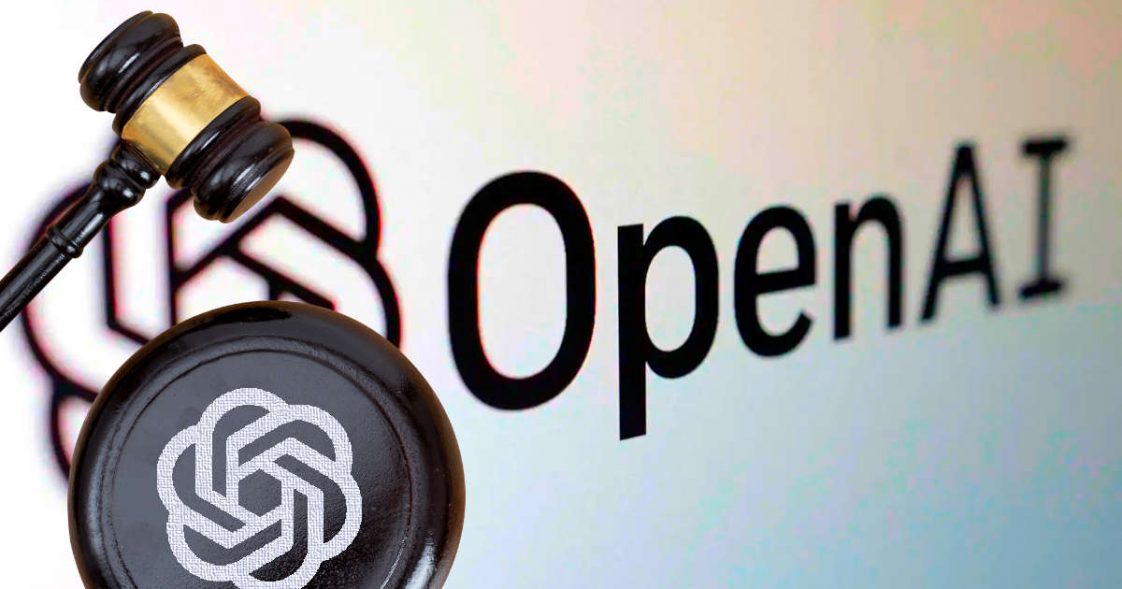OpenAI Facing FTC Investigation: Analyzing The Potential Consequences

Table of Contents
The FTC's Concerns Regarding OpenAI's Practices
The FTC's investigation into OpenAI likely stems from several key areas of concern regarding its practices. These concerns touch upon critical aspects of responsible AI development and deployment.
Data Privacy and Security
OpenAI's large language models (LLMs) are trained on massive datasets, raising significant data privacy and security concerns. The FTC is likely scrutinizing whether OpenAI has adequately addressed these issues. Potential violations include:
- Insufficient consent: Has OpenAI obtained explicit and informed consent from individuals whose data was used in training its models?
- Data breaches: Have there been any security breaches exposing user data involved in the training process?
- Inadequate data security measures: Does OpenAI employ robust security measures to protect the vast quantities of personal data used in its AI models, complying with regulations like GDPR and CCPA?
Failure to comply with these regulations could result in substantial penalties. The investigation may also explore how OpenAI handles data minimization and purpose limitation, core principles of many data protection laws.
Algorithmic Bias and Discrimination
Another key area of concern is the potential for algorithmic bias in OpenAI's models. AI systems trained on biased data can perpetuate and amplify existing societal biases, leading to discriminatory outcomes. The FTC's investigation likely examines:
- Gender bias: Do OpenAI's models exhibit biases against certain genders in their outputs?
- Racial bias: Are there racial disparities reflected in the models' responses or decision-making processes?
- Socioeconomic bias: Do the models reflect and reinforce socioeconomic inequalities?
Addressing algorithmic bias is crucial for ensuring fairness and equity in AI applications. The investigation could lead to a deeper examination of OpenAI's methodologies for detecting and mitigating bias.
Misinformation and Malicious Use
The potential for misuse of OpenAI's technology is another significant concern. The ability to generate realistic text and other content raises the specter of:
- Deepfakes: Could OpenAI's models be used to create convincing but false videos or audio recordings?
- Spam and phishing: Could the technology facilitate large-scale generation of deceptive online content?
- Targeted disinformation campaigns: Could the models be exploited to spread misinformation and influence public opinion?
OpenAI's responsibility in mitigating these risks is central to the FTC investigation. This includes exploring the measures OpenAI has put in place to prevent malicious use and the effectiveness of these safeguards.
Potential Consequences of the OpenAI FTC Investigation
The consequences of the OpenAI FTC investigation could be far-reaching, impacting the company's future and the broader AI industry.
Financial Penalties and Fines
Depending on the severity of any violations discovered, OpenAI could face substantial financial penalties and fines. The FTC has a history of imposing significant fines on tech companies for privacy and data security violations, setting a precedent for potential sanctions against OpenAI.
Regulatory Changes and Increased Scrutiny
The investigation could catalyze stricter regulations on AI development and deployment. This could significantly impact OpenAI's future product releases and services, demanding greater transparency and accountability. It might also lead to a more cautious approach to AI innovation across the industry.
Reputational Damage and Loss of Trust
A negative outcome from the FTC investigation could severely damage OpenAI's reputation and erode user trust. This could affect its ability to attract investment, secure partnerships, and maintain its market position in the competitive AI landscape. Negative publicity could also lead to a decline in adoption of OpenAI's products and services.
OpenAI's Response and Mitigation Strategies
OpenAI has issued statements acknowledging the FTC investigation and expressing its commitment to cooperation. The company's response will be closely scrutinized, with its effectiveness in addressing the FTC's concerns determining the investigation's outcome. OpenAI may need to implement further proactive measures to prevent future issues, including enhanced data privacy protocols, improved bias mitigation techniques, and strengthened safeguards against malicious use.
Conclusion: Navigating the Future of OpenAI After the FTC Investigation
The OpenAI FTC investigation represents a critical juncture for the AI industry. The potential consequences—financial penalties, regulatory changes, and reputational damage—underscore the importance of responsible AI development and deployment. The outcome will significantly shape the future of AI regulation and the trajectory of OpenAI's growth. To stay informed about this crucial development, follow the developments in the OpenAI FTC investigation and stay updated on the OpenAI case. Learning more about the consequences of the OpenAI FTC investigation is vital for anyone interested in the future of AI.

Featured Posts
-
 Harry Potter Tv Series Cast Revealed Dumbledore Snape Hagrid And Mc Gonagall
May 29, 2025
Harry Potter Tv Series Cast Revealed Dumbledore Snape Hagrid And Mc Gonagall
May 29, 2025 -
 Bryan Cranston On A Malcolm In The Middle Reboot Whats Different
May 29, 2025
Bryan Cranston On A Malcolm In The Middle Reboot Whats Different
May 29, 2025 -
 Pokemon Tcgs Pocket Celestial Guardians Expansion Launch Date And Event Information
May 29, 2025
Pokemon Tcgs Pocket Celestial Guardians Expansion Launch Date And Event Information
May 29, 2025 -
 Coco 2 Pixars Confirmed Sequel A Risky Move
May 29, 2025
Coco 2 Pixars Confirmed Sequel A Risky Move
May 29, 2025 -
 Moto Gp Marinis Take On Espargaros Return To Racing
May 29, 2025
Moto Gp Marinis Take On Espargaros Return To Racing
May 29, 2025
